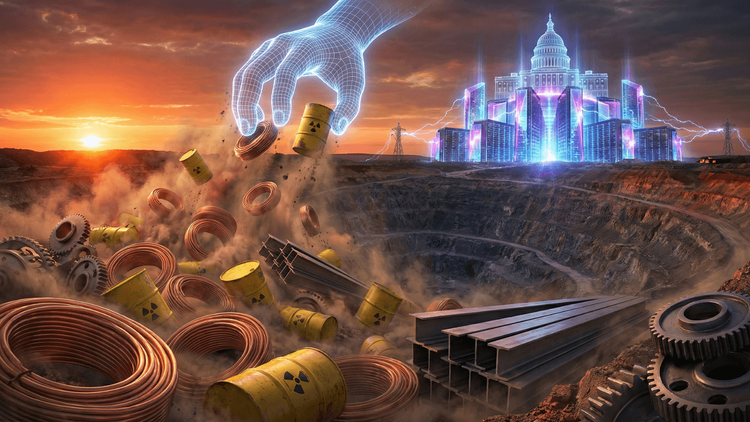DOE Unleashes $355 Million to Rebuild U.S. Critical Mineral Supply
A sweeping federal push aims to rebuild America’s mineral independence with $355 million in strategic investments.

The United States is accelerating its drive toward mineral independence, and the latest move out of Washington marks one of the most consequential actions in years. The Department of Energy’s announcement of $355 million in new funding opportunities signals more than just another investment round. It marks the strongest federal push yet to rebuild the nation’s supply chain for critical minerals and materials that power everything from fighter jets to electric vehicles. With geopolitical tensions rising and technological competition intensifying, America is making a bold attempt to reclaim ground lost to foreign suppliers.
The funding package is split into two major tracks. The first, worth up to $275 million, supports American industrial facilities that can extract valuable minerals from coal waste and other industrial byproducts. The second invests up to $80 million to create advanced mining proving grounds aimed at testing next-generation technologies in real-world environments. The broader message is clear. The United States is not content to remain tied to foreign mineral inputs and intends to rebuild a competitive, domestic mining and processing network that aligns with the ambitious energy, defense and manufacturing plans underway across the country.
Rebuilding a Supply Chain Years in the Making
For decades, the United States allowed its mineral independence to erode. China became the world’s dominant supplier of rare earths. Russia and Central Asian nations built strongholds around antimony. Africa played an increasingly important role in cobalt. And while American demand surged in response to the shale revolution, clean energy buildout and defense modernization, the country’s own mining sector lagged behind. This latest funding initiative is designed to reverse that trend, and fast.
Energy Secretary Chris Wright underscored the urgency with unmistakable clarity. For too long, he said, America relied on competitors for the minerals that power its economy. The result has been a supply chain vulnerable to manipulation, disruption and political leverage. The strategic shift unfolding now aims to turn that vulnerability into strength. By investing in domestic production and processing, the United States intends to eliminate chokepoints that threaten everything from semiconductor manufacturing to electric-vehicle production.
The stakes extend far beyond economics. In an age where critical minerals are the building blocks of national security, securing them domestically is becoming non-negotiable. Whether the focus is cobalt for aerospace components, rare earth magnets for defense systems, graphite for battery plants or antimony for munitions, the supply lines America depends on must become resilient, diversified and under U.S. control.







